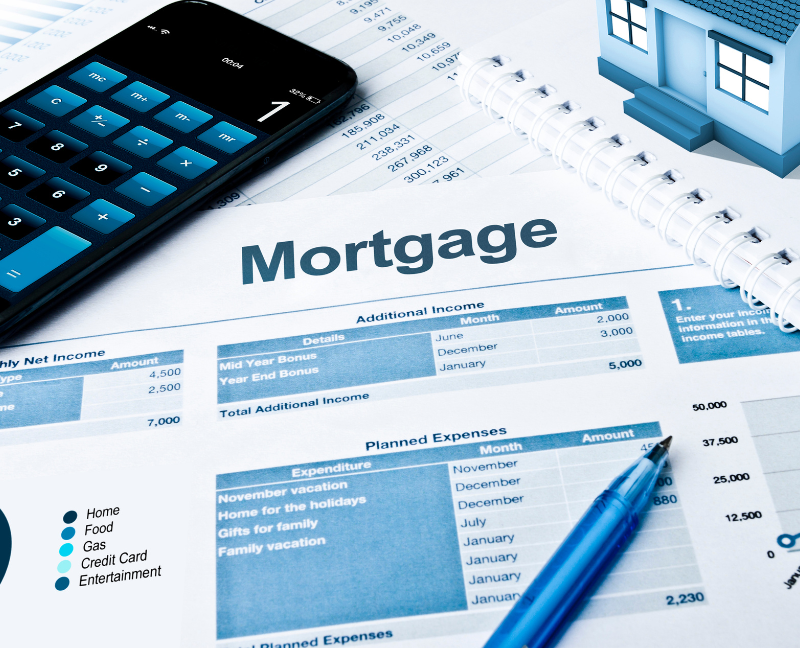In our previous post, we talked about the basics of real estate purchase agreement. Now, we’re going to learn more about it by discussing earnest money deposit and closing expenses while answering some of the most frequently asked questions about real estate purchase agreements.
Consider earnest money as a deposit made in good faith by a buyer to a seller to demonstrate the buyer's commitment to their deal to buy a house. A buyer may withdraw from this deal at any time but will forfeit the earnest money deposit, save if the seller fails to satisfy specified restrictions.
The purchase agreement will specify how much earnest money is needed for the real estate contract. In a sense, it acts as insurance for sellers who usually want to make sure they aren't wasting their time or missing out on other chances by pursuing a contract that won't close.
To prevent any problems and guarantee that it is distributed properly and on schedule, this earnest money is often kept in escrow by a third party. When you close on the property, any funds deposited into escrow will be used for your closing expenses or down payment.

Closing costs are the additional charges that purchasers and sellers must pay in order to finalize a real estate transaction. Loan origination fees, discount points, appraisal fees, title search fees, title insurance, surveys, taxes, deed recording fees, and credit report fees are a few examples of these expenses. Three business days prior to a scheduled closing or settlement date, lenders are required by law to give buyers a closing disclosure.
What fees apply to closing? They are essentially processing costs and ongoing costs that you will pay to your lender after you close on a home.
Amounts for typical expenses including home appraisals, title searches, property taxes, homeowners insurance, lender's fees, and ownership transfers are included in closing costs. Your purchase agreement should specify who is responsible for paying these closing charges (parts of which may be divided between the buyer and seller).
Final closing fees may range from 3% to 6% of the cost of a home.
The most frequently asked queries about real estate acquisition agreements are listed below.
A real estate purchase agreement is not filed with county records, so it does not need to be notarized in order for it to be legally binding.
When the option is specified in the real estate contract or when the laws of your state permit it, a real estate contract may be ended. State laws typically permit the termination of a contract when a seller omits to disclose any significant problems with the property.
The costs involved with creating this contract are normally covered by the seller's agent commission charge, which is paid as part of the closing costs.
The terms and conditions under which a property will be sold are clearly spelled out in a real estate purchase agreement, which is a binding legal instrument. It's created to assist you prevent hitches by taking into consideration aspects related to a property purchase and sale. It's built to safeguard both buyers and sellers and ensure a smooth transaction.
As you go about buying or selling a home, being aware of the fundamentals of this document can help you avoid any potential hazards.
One of the most common ways to purchase real estate is through auctions. Make sure you're ready with a knowledge of how they operate and what you need to know before bidding to avoid the drama of the bidding contest.
Various laws and norms apply to auctions, and they differ from state to state. If you intend to participate in an auction, this quick guide offers an overview of what to anticipate as well as advice on how to get ready.
You must be well-prepared before bidding at an auction because the bidding process is public, and you must pay the deposit and sign the contract after your bid is chosen as the winning one. These are the things you might want to consider.
Anyone planning to place a bid at an auction should be familiar with the associated lingo. Here are some of the main terms you should be familiar with, however, this is not a full list:
Unless the bidder and seller agree on any additional stipulations before the auction begins, auctions do not often have a cooling-off period and are typically unconditional offers. If your bid is accepted, the deposit must be paid and the documents must be signed right away after the auction. You must enter an auction ready to finish the transaction should your bid be accepted. If you back out of the deal, you could be held responsible for any losses the seller incurs as a result and lose your deposit.
Researching the current auction regulations in the state or territory where you intend to purchase is always a smart idea.

Before you start looking for a home, it could be a good idea to have your mortgage pre-approval prepared. When a lender determines how much you can afford to borrow based on an evaluation of your finances and credit rating, this is known as a home loan pre-approval. With this knowledge, you may begin your search for homes within your price range without getting overexcited.
It's crucial to understand that a pre-approval does not imply that your loan application will be approved in full. Keep your lender informed of your financial condition and any changes about the property you intend to bid on.
The deposit amount is specified in the contract of sale and is normally 10% of the property's sale price, though you may be able to agree with the vendor on a different amount before the auction begins. It's crucial to be aware that properties sold at auction do not have a cooling-off period, so if your offer was the highest, you will need to pay a deposit right away.
The sale agreement specifies the seller's settlement date. Property settlement times range from 30 to 90 days on average, though they can differ. The deposit will be forfeited, and you might also be responsible for any losses incurred by the seller if you are unable to complete the transaction.
Although there isn't a foolproof recipe for auction success, the following basic advice might be useful:
Before the auction, you must have completed all of your pre-purchase investigations and research. Consider pest and building inspections, unit-specific strata reports, and performing your due diligence.
Anyone looking to buy a property at an auction should seek advice on the legal requirements in their state or territory, the terminology involved, and the state of their finances due to the demands placed on the winning bidder at an auction, including providing the deposit and signing the contract and the lack of a cooling-off period.
You must have your money in order before signing up on the auction day since you will need to pay a deposit after the auction is over. This also entails having your deposit available.
Keep lines of communication open with the auctioneer and make sure they are aware of your desired bid amount and the increments you wish to boost it by.
It's crucial to be aware of your upper financial boundaries when making split-second bidding decisions. Set an ideal price range and an upper limit so you'll know when to stop bidding.
eBay for real estate? Not quite, but granted that they adhere to social distancing rules, property auctions can still take place during lockdowns connected to COVID-19 thanks to the development of internet auctions.
This might enable prospective buyers to view the results and the bidding process of other comparable properties before making a real-world offer.
If you plan to bid, you must create an account on the preferred platform in advance and successfully pass an ID verification, which typically calls for your driver's license. The agent you visited to examine the property will receive the information.
Our expert real estate experts can help if you're thinking about buying your first house at an auction but don't know where to begin.
To learn more, contact us at RE/MAX Advanced Realty by dialing 317-316-8224 today!
In the first part, we talked about different real estate techniques for investors, including live-in-flip, real estate flipping, house hacking, and investing in Single-Family Rental (SFR) homes.
Now, we're going to learn more strategies to help aspiring and current investors like you!
Serving as a middleman between a home buyer and a home seller, real estate wholesaling involves either charging a fee for the service or keeping the difference between what the seller receives and what the buyer pays.
This frequently entails "driving for dollars," or scouring communities for properties the investor believes they may profit from. Investors may also employ MLS listings and direct mail marketing campaigns or they may just keep an eye out for For Sale By Owner (FSBO) signs.
Real estate investors can invest without actually owning any real estate by using REITs, or real estate investment trusts, which function as mutual funds. Investors purchase REIT shares in a manner akin to purchasing stock or mutual fund shares, and the trust pays dividends to its stockholders.
To allow citizens to engage in large-scale, income-producing real estate, Congress formed REITs in 1960.
All dividends given to shareholders by REITs are deductible from their taxable corporate income. According to the Securities and Exchange Commission's Office of Investor Education and Advocacy, the majority of REITs do not pay corporate tax since they distribute at least 100% of their taxable revenue to shareholders.
In general, REITs are thought to be a wise investment. The 40-year compounded annual return on REITs, as measured by the FTSE NAREIT Equity REIT Index, is 9.44 percent.
Groups that invest in Real Estate Investment Groups (REIGs) are associations of private investors who pool their resources and expertise to make real estate investments utilizing a variety of techniques. Contrary to a REIT, a real estate investment group is not a taxable corporation with a board of directors subject to stringent regulations. For instance, REITs must have at least 100 investors by the end of their first year, and no more than five people may possess at least 50% of a REIT.
In contrast, private agreements rather than governmental rules control real estate investment organizations. The structures, membership fees, and levels of engagement for REIGs are all flexible. Investors who want to have an interest in actual real estate may want to consider joining a real estate investment group.
Purchasing certificates of property tax liens is an indirect method of real estate investing. When a property owner doesn't pay their property taxes, the municipality where the home is located will file a tax lien, which is a legal claim on the property. It serves as a formal claim to the assets for the owed sum.
These don't resemble mortgage liens, which grant a lender the right to the property until the borrower repays the loan.
A certificate stating the amount owed and the interest rate that the lien owner will receive is issued by the municipality when a tax lien is placed on a piece of real estate. Following that, the certificates are auctioned off to investors; at the moment, 28 states permit the auction of these certificates. Property tax arrears amounting to over $21 billion annually, according to the National Tax Lien Association, making it a substantial area for investment.
When a bidder wins the auction, they pay the outstanding taxes and acquire the right to either foreclose on the property or receive their money back when the homeowner makes up the unpaid taxes. The homeowner has a set period to make the payment or risk foreclosure. The lien holder recovers their investment plus interest if the homeowner makes good on their payment.

Another real estate technique for investors is called BRRR or Buy, Rehab, Rent, Refinance, Repeat.
The plan involves purchasing a house, ideally below market value, rehabilitating it, renting it out to pay the mortgage, obtaining a cash-out refinance, and then using the profit to start the process over again.
This is not a method for beginners; rather, it is for seasoned investors because it includes finding amazing discounts on houses that need some renovation but are still profitable investments.
Since the investor will be paying the mortgage while the renovation is taking place, it is crucial to understand the costs and length of the repairs that will make the rental property appealing to residents. It's crucial to increase the property's curb appeal because kitchens and bathrooms often have the highest return on investment.
The next stage is to find trustworthy tenants to rent the property to for a rate that at least covers the mortgage payments until the investor can refinance. Before refinancing, banks typically need a "seasoning" time, and a cash-out refinance needs a particular amount of equity. Additionally, lenders rarely refinance an empty home, so the investor will need to have a strong credit score—typically 620 or higher—to qualify.
The investor continues the process by locating another contract. It is not a passive investing approach, even though it has the potential to be profitable. A network of lenders or the capacity to take out a home equity line of credit (HELOC) may be necessary for the investor since it may be challenging to obtain a typical mortgage on a distressed property.
This is a method for paying off debt on several rental properties so that you own them free and clear. It can also be used for real estate investing. Financial expert Dave Ramsey popularized it as a method of paying off personal debt.
The strategy includes:
The mortgage on the rental property with the lowest balance must get the largest monthly payment feasible using all available resources, including savings from a day job and all rental revenue. The investor will continue to earn the same amount of money when that is paid off, but there will be one less mortgage to pay off. The snowball grows larger with each mortgage that is paid off since the investor has more money to pay off the subsequent mortgage. Finding quality rental properties at competitive mortgage rates and practicing disciplined saving for the years necessary to carry out the plan are requirements of the strategy.
A property purchase might fall through for a variety of reasons. What if you suddenly change your mind, though? Things can get tricky if you're under contract to buy a house but are having second thoughts and want to withdraw so you’re wondering how to back out of an accepted home purchase offer.
Although it's not impossible, there may be consequences if a buyer decides to break a signed real estate contract with a seller. This is especially true if there are no escape clauses in the agreement. It is crucial to comprehend your legal and financial rights as a house buyer. If you're considering rejecting an offer, take these things into account.
The short answer: is yes. When you sign a purchase agreement for real estate, you’re legally bound to the contract terms, and you’ll give the seller an upfront deposit called earnest money. Earnest money shows the seller that you’re serious about your intention to purchase the house and plan to follow through on the agreement.
It is however absolutely permissible to withdraw from an accepted offer if specific conditions are put in place and are not met. These limitations, which shall be incorporated into the contract, set forth the circumstances under which withdrawal without penalty shall be permitted. Your earnest money will typically be returned.
These are the conditions that must be satisfied before you can proceed with a house purchase and are often included in a normal real estate contract. This includes a common understanding of specified activities that must be finished within a set amount of time.
The house inspection, obtaining financing from their lender, selling their own home first, or the home appraising for less than the asking price are all examples of stipulations that buyers may include. You can easily withdraw from an offer if a predetermined contingency isn't met, and you'll still get your earnest money deposit back.
If there are conditions, the buyer typically has additional protection if they decide not to proceed with the transaction. Consider a scenario in which a house inspection report reveals pricey problems, such as a foundational crack or a roof that needs to be replaced due to damage.
You can back out of the transaction if there is a home inspection contingency in place, particularly if the seller won't make repairs or provide credits to cover the costs. A financing contingency, which allows you a way out if your lender doesn't follow through with loan approval, is another crucial safety measure.
To ensure your safety, carefully review the contingencies listed in the agreement, paying great attention to the timeframes associated with each. For instance, you might have to finish a house inspection (and request repairs or credits) within 14 days of the contract being issued.
For final loan approval, a financing condition might need to be satisfied in 30 days. If you require additional time to perform a conditional job, your real estate agent will often need to submit a contract addendum for the seller's approval before you can obtain the extension.
However, things may get complicated—and sometimes ugly—if a home buyer backs out of a deal for a reason that isn't expressly stated in the contract. You risk losing your earnest money if you reject an offer for a non-contingent cause. The seller is legally entitled to keep your money because you put that money down with the understanding that you would stick to the terms of the contract and only back out for reasons that are not specified in the contract.
For a buyer, this may be unaffordable, especially if they still intend to purchase another home. Earnest money deposits are normally between 1 and 2 percent of the home's purchase price, but they can occasionally be more. Therefore, a buyer who backs out of a $300,000 house deal stands to lose between $3,000 and $6,000 in addition to legal fees.
Yes, you risk losing your earnest money and the seller may take additional legal action if you break a signed contract for a cause that was not specifically stated as a contingency. Before the purchase agreement is formally signed, it is simpler to back out of the transaction. It will be far more difficult for you to leave after that, or after the contingency periods have passed, without getting into legal or financial difficulty.
A buyer who violates the terms of the contract may be sued for "specific performance," in which case the court orders the buyer to close on the house. This scenario is not particularly typical, though.
A clause in several property purchase contracts stipulates that if a dispute arises, both parties must consent to mediation. With the aid of a third-party mediator, you will thus have the opportunity to present your case to the seller directly in the hopes of finding a non-judicial solution.
In conclusion, a substantial commitment to homeownership shouldn't be viewed lightly. A buyer can cancel a binding real estate agreement with a seller, but there might be substantial repercussions. Including contingencies in the contract before you sign is the greatest approach to safeguard yourself. Here, working with an experienced real estate agent and possibly an estate lawyer can be essential.
If you do need to back out of an accepted offer, be upfront with the seller as soon as you’ve made your decision. Work closely with your agent and attorney, who can help you communicate (in writing) why you want to back out. Ultimately, you may lose your earnest money deposit — but buying a home you don’t want or can’t afford would be a more expensive mistake in the long run.
An agreement that controls the acquisition and selling of real estate in Indiana is known as a real estate purchase agreement. It specifies the parameters of the transaction and the circumstances under which a sale will take place and is made between a buyer and a seller.
Make sure your contract is unbreakable whether you want to sell your permanent residence or an investment property, purchase a new house, apartment, condo, or both.
It is crucial to take the time upfront to clearly define the conditions under which a property transaction will take place and to protect against potential delays or unforeseen events since it can help you avoid financial or legal obstacles later on.
An agreement between a buyer and seller to conduct a real estate transaction is outlined in a real estate purchase agreement. By signing a purchase agreement, the buyer and seller are effectively "under contract," as is the subject property.
A real estate purchase agreement, also known as a real estate sales contract, home purchase agreement, real estate purchase agreement, or house purchase agreement, is a binding legal document that outlines important terms of the home sale transaction.
In essence, when a prospective buyer submits an offer to buy a new house, the buyer will include essential financial information, including their offer price and suggested terms for the sale. The parameters of this offer will then be open for the house seller to accept, reject, or negotiate.
Essentially, when a potential buyer files a purchase offer for a new home, the buyer will include crucial financial information, such as their offer price and suggested parameters for the sale. The home seller will then have the option to accept, reject, or negotiate the terms of this offer.
This contract outlines the requirements that must be satisfied for the sale to close and for the new buyer to take the title of the property, signaling the parties' intent to engage in a home-selling transaction.
The real estate agent representing the buyer will often draft and prepare the purchase agreement for a home. The fact that agents cannot draft their contracts because they are not licensed attorneys is important to note. Instead, they often complete forms that have already been developed by a legal firm that specializes in real estate transactions, for the sake of consistency and the protection of all parties.
In other words, a pre-drafted purchase agreement template will be used to purchase the particular house, with the agent filling in any blanks with specifics on the property's particulars.
The facts of the property transaction are outlined in a real estate sales contract and purchase agreement. You'll discover several recurring components within its pages, such as:
Appliances and fixtures: Any home appliances, wall-mounted accessories, and fixtures that are either included in or excluded from the sale of the real estate in Indiana.
A contingency is a requirement that needs to be satisfied and is dependent on certain occurrences in reality. A purchase agreement with contingencies in real estate specifies that even if an offer has been made and accepted on a property, there are still some conditions that must be met before the transaction is finalized.

When buying or selling a home, you could encounter many contingencies, such as:
Appraisal Contingency: To guarantee that the appraised value of a home is the same as or greater than the agreed-upon purchase price, an appraisal contingency is used.
These are the basics of real estate purchase agreement. In the next part, we’ll dive deeper into earnest money deposit and closing expenses and answer some of the most frequently asked questions on purchase agreements.
There are a lot of things you need to ask yourself before deciding to buy a home, including what kind of size, neighborhood, and amenities you want. Detailing your needs and wants for a home is a crucial stage in the home-buying process because it will help you select the ideal property.
You presumably have a list of nice-to-haves in addition to any must-haves. It's difficult to strike a balance between these desires, but by carefully weighing all the positive and negative aspects of a house, you can safeguard your investment and avoid any unexpectedly high costs.
The age of the home is only one aspect to take into account, but it can be a significant one because old and new homes differ significantly in terms of cost, safety, and maintenance.
Over time, the quality of home construction has changed and improved, in part because of the constantly shifting availability of building materials and in part because of modernized building codes. For instance, the federal government outlawed the use of lead-based paint, which was once often used in buildings, in 1978. In comparison to 100 or even 50 years ago, further advancements in the form of modern insulation, updated technology, and more cheap building materials have irrevocably changed how homes are constructed today.
Historical homes are at the very top of the spectrum, and the National Park Service recognizes and keeps an eye on them. Purchasing a historic property has its distinct benefits and drawbacks; however, just because a home was constructed in the distant past doesn't imply that it is historic. The connection to historical figures or events that a house has to meet to be classified as a historic dwelling. This indicates that many older homes on the market offer a cozy, bygone feeling without the responsibilities of owning historical property.
Newly constructed homes are on the other end of the range. The majority of these new homes are larger and offer every amenity of today. But what distinguishes an old house from a new house when there are so many different types of residences available? In this article, we define an old home as one that is at least 50 years old but not more than 100 years old, as opposed to a new home, which is one that was built recently.
Many homeowners still favor older homes for their charm and personality despite the advancements in home construction over the past few decades. However, there are several additional benefits to dwellings constructed 50 to 100 years ago, such as the following:
Old houses stand out for their dedication to architectural distinctiveness in a time when cookie-cutter residences are springing up throughout the country. The architectural styles that are not frequently imitated in modern architecture include Tudor, Colonial, and Victorian. If an architectural character is near the top of your list, an older home can be a suitable choice because modern homes sometimes lack the craftsmanship and attention to detail that went into creating these structures.
Older houses often have larger yards since land used to be more affordable. This site was frequently covered in expensive landscaping, including trees and bushes that have been well-maintained for many years. This kind of established landscaping has been shown to increase a home's worth and also make its residents more comfortable due to the psychological advantages of living in a home with more nearby vegetation.
Knowing the purchasing history of your house, which can show the asset's worth growth over time, is also very useful. The existence of this document trail can show if the house you're buying is a wise long-term investment, even though the past doesn't guarantee the future. There is little to no information available for older properties that may be used to make an informed choice.
Purchasing real estate entails taking into account factors outside of the actual house, such as the area. Older homes are less likely to see zoning changes since they are more centrally placed, nearer to the city center, and part of stronger neighborhoods.
These older homes still cost substantially less upfront than their contemporary counterparts, even though you may pay for their character and uniqueness. New homes can cost 30% or more more than older homes, which is a startling difference.

Any property purchase—new or old—is a significant undertaking. Every advantage has a possible disadvantage that needs to be taken into account. while a result, it's crucial to keep in mind that there is only one perfect decision: the one that is best for you while you consider your possibilities for a home. The following drawbacks should be taken into account if you decide an old house would be a good fit.
Older homes are built with older materials, so it makes sense that their aging architecture would necessitate regular upkeep. Existing homes require a variety of repairs, from defective plumbing to sloping flooring, and these repairs are not cheap.
However, wise purchasers might use the reduced upfront expenditures of these homes to offset ongoing upkeep expenses. Staggering savings can help you pay for many of these expenses in the future because less money is required for a down payment.
Everything in modern culture is oversized. This means that whereas older homes have smaller, more segregated sections, newer residences frequently have larger, open floor designs.
It's critical to keep in mind the disparities between modern life and the time these residences were built. Older homes typically had fewer closets, lower ceilings, and less space for appliances because individuals didn't have nearly as many material possessions as they do today.
The materials used to create homes have advanced along with building codes. These modifications benefit newer homes because higher insulation allows them to better retain heat or air depending on the season.
With older homes, the same cannot be said. As stated by the U.S. According to the American Housing Survey conducted by the Census Bureau, owners of older homes pay 17% more annually on electricity and 38% more on gas.
Older homes might not have been built to code to resist natural disasters, prioritize electrical safety, or guard against the dangers of plumbing problems since construction standards have evolved. The house inspection is much more crucial because these homes lack inherent safety.
These are just some of the advantages of owning an old home. In the next part, we’ll talk about the pros of buying a new house.
Real estate investing is a great method to diversify your portfolio of investments.
Home prices are significantly less erratic than those of securities, and real estate has no link with the stock market. Property owners can also take advantage of numerous tax breaks, which boosts their investment's return.
Last but not least, building a portfolio of rental properties in geographically diverse areas makes investors more resilient and able to weather numerous economic crises.
Real estate assets (such as commercial real estate, single-family rental homes, apartment buildings, real estate wholesaling, real estate loans, and others) come in a number of forms, and the same is true with real estate investments.
Which approach is best for a particular investor relies on a variety of factors, including their degree of risk tolerance, the amount of control they desire over the asset, whether they are seasoned or novice real estate investors, the amount of cash they have available for a down payment, and the amount of cash flow they need.
Here are some examples of different real estate investment methods.
The United States residential real estate market is one of the most effective engines for fostering intergenerational prosperity, and rental property is one of the most promising real estate investments, thanks to a combination of fixed-rate mortgages, gradual price increases, and tax incentives that encourage home buying.
After the housing meltdown of 2008, institutions and retail buyers started to see single-family houses as highly investable assets. With a market value of $4.6 trillion, they have since grown to become the largest asset class in real estate. In 2021, the SFR and build-to-rent sectors received an expected $45 billion in institutional funding, according to John Burns Real Estate Consulting.
Although there have been ups and downs in particular markets, as this chart from the Federal Reserve of St. Louis demonstrates, overall house values have improved.
Investors may employ leverage by borrowing from banks to finance assets that offer rental income (cash-on-cash) as well as capital growth over time. Monthly rental income assists in partially or completely covering the mortgage as the investor builds equity.
Real estate also guards against inflation, which over time diminishes the value of fixed mortgage payments.
Rental property is an essential part of a diversified investment portfolio because of its low correlation to the stock market.
The down payments on investment mortgages may be too expensive for some would-be investors. Through "house-hacking," buyers could hasten the process of building equity in rental properties.
Purchasing a home to live in and then renting out a portion of it is known as "house hacking." In this manner, individuals can use the rental money to lower their mortgage payments and occasionally even turn a profit. This so-called passive income is available to the house hacker to use any way they see fit, whether to pay off the mortgage, make a sizable purchase, or even put money down for a second property to increase their portfolio.
The investor has access to residential mortgages through home hacking, which has several benefits including cheaper interest rates than investment mortgages and a far smaller down payment.

Flipping involves making quick repairs to homes and then selling them. Since the flipper continues to make mortgage payments until the house is sold, the success of a flip is determined by the seller's profit over the purchase price and the speed at which the property sells.
Flippers look for deals that are below market value, improve the homes to a sufficient extent that they can significantly increase the price, then sell the properties rapidly. The most desirable property for a flipper might be one in need of significant repairs, provided they can do it without going over budget.
Successful flippers have a system in place, including easy access to low-cost materials, a team that can complete work of a high standard at a reasonable cost, and a real estate agent who can sell a house quickly.
The drawback of flipping a home is that the seller will pay more capital gains taxes as a result than if the property were held for at least two years.
The live-in flip enables an investor to live in a fixer-upper while making improvements and then sell it for a significant, tax-free profit afterward. The live-in flipper uses the house while it is being renovated, even though they lose money for each month the house is in their possession.
They can use owner-occupied finance to live in a property they are treating as an investment if they can discover a home that is under market value or one where modifications can raise its value.
The live-in flip can be a potent investing technique, particularly if the investor is eligible for low-interest loans like Veterans Administration loans.
Gains up to $500,000 for a couple or $250,000 for an individual are exempt from taxes under the U.S. tax code when investors sell homes. For the Section 121 Exclusion to apply, the investor must own and occupy the home for at least two of the five years preceding the sale.
Some investors use the money they make from a live-in flip to buy a nicer property, to grow their portfolio, or use the money to buy a home without incurring debt.
What is the live-in flip's drawback? Every few years, the investor must relocate while living on a construction site. And there's always the chance that the house has more significant issues than they initially thought.
Additionally, there is a chance that an investor will have to vacate while a live-in flip is ongoing. Depending on the circumstances of the move, you might be eligible for a partial Section 121 exclusion.
If an investor is compelled to make an early move, they should speak with a tax expert.
These are just some strategies for real estate investors. We’ll share more investing techniques in our next post so be sure to check our website for updates.
Although it might be a daunting task, decorating a home can be surprisingly exciting. After all, there are various choices to make. There are rooms to furnish, walls to paint and a decent quantity of upholstery, décor, and hardware to choose from.
Luckily, you're not the only one trying to create a beautiful space, and many interior designers are more than willing to provide tips on how to decorate a home.
So whether you want to give your house a quick makeover or take on a major renovation, these tips might help you!
One of the most economical decorative changes you can make to your home is painting the walls, and even painting one wall is a cost-effective (and incredibly cool) improvement.
To give your area a fresh look, get a basic slipcover as opposed to a brand-new sofa.
Consider what you should get rid of before worrying about what you can and cannot afford to acquire. Items that are out of date, worn out, or damaged may be ruining the appearance of your home. If they're not necessary, getting rid of them might offer your home a fresh start.
Instead of purchasing new curtains, upgrade your current set by adding an iron-on accent to simple curtain panels.
A room can be completely changed by framed images, which don't have to be pricey. Try your hand at creating your own work of art and frame it to hang alone or as a component of a gallery wall if you're truly up for the challenge.
DIY Home Decorating Tips - Cheaper Ways To Update Your Home’s Look
Home Staging Tips For Beginners For An Easy Sale
Everything You Should Know About Home Renovation And Transforming A Home On The Market
Faux plants can be used to create stylish décor at an affordable price. Choose a cost-effective solution, then present it on a lovely stand or in a custom-made pot.
Try to purchase it on sale if you have your heart set on something that is out of your price range. Get notifications or sales alerts from shops you want to get an email or SMS in advance if any of their items will reduce its price soon.

Cord concealers are available from reputable sellers like Amazon. Making your home appear effortlessly tidy and organized will depend greatly on if you can hide unsightly cords and wires from the TV or light fixtures.
Your garage's rusty wooden ladder might become your newest favorite decorative item. Use one to keep extra towels or throw blankets after cleaning it up with some sandpaper and possibly a coat of paint.
Purchasing used (pre-loved) furniture and home accessories is a terrific method to save money on items that would otherwise be quite expensive. You never know what secret treasures you'll find in a flea market or thrift shop.
You can give an old-end table a brand-new look with a little paint and creativity. Think about adding gold paint to the edge of a plain black piece.
Plates may make for some very stylish wall décor whether you never use the china from your wedding or the set you scored from an H&M sale. Install the customized plates on an empty wall for a quick update.
Want to add a beach vibe to your room? Then using a glue gun and jute rope, re-decorate an old vase or dish for a rustic touch.
The kitchen is one of the most utilized rooms in the house, so painting the cabinets will give it an instant facelift.
Looking for ways to decorate a home on a budget? Well, your wish is our command!
One of the cost-free decorating concepts simply needs creativity, time, and muscles. By rearranging the furniture, you can give your space a fresh feel.
Re-design a bookcase either by repainting or using removable wallpaper.
A new mirror hung above the vanity or sink is the fastest way to update an outdated bathroom. Luckily, there are many reasonably-priced options you can choose from online.
After your next dinner party, save a few wine bottles and turn them into unique vases. With a little hot water and soap, the labels come right off, leaving behind a slim vase suitable for containing a few fragile stems.
You can find affordable woven baskets at almost any retailer, online and offline.
Woven baskets are only good at keeping your space clutter-free; it also gives a quick Bohemian touch to the room.
Eclectic designs are frequently the simplest to reproduce across the board for interior design. Why? Mixing, not matching, is the key to this aesthetic. It will be far more economical to search for furniture and décor because there is no need to acquire a certain side table or that precise shade of blue.
These are just some decorating tips on a budget that you can consider. If you have more techniques, feel free to share them in the comments below.
Finding the proper loan to suit your needs can be challenging given the abundance of lenders from which to select and the variety of home loans on the market. As a result, you might decide that it's simpler to seek assistance from a mortgage broker when shopping for the ideal home loan.
Mortgage brokers coordinate home loans between lending institutions and borrowers, or those looking for a mortgage. They can help you with the application process and identify home loan options that are appropriate for your needs and goals.
Brokers should take the time to learn about your unique position, determine how much you might be able to borrow, provide you with options for house loans, go over how each would satisfy your needs, and inform you of the loan's cost. The broker can help you with the application procedure through loan settlement with the lender after you've determined which house loan best suits your needs.
Choosing the right mortgage broker can be a crucial step in obtaining the best mortgage for your needs. Here are some tips on how to choose the right mortgage broker:
Before you choose a mortgage broker, do some research to learn about their reputation, experience, and track record.
You can start by checking online reviews and testimonials, asking for referrals from friends or family members who have recently purchased a home, and researching the broker's credentials and licensing.
A mortgage broker with years of experience is more likely to have the expertise and connections necessary to find you the best mortgage deal.
Ask about their experience in the industry and their success rate in securing favorable mortgage terms for clients.

Make sure the mortgage broker is licensed and registered with the appropriate regulatory body in your area.
This will help ensure that they follow ethical and legal standards when dealing with clients.
Get quotes from multiple mortgage brokers and compare their rates and fees.
Make sure you understand the fees associated with each quote and ask questions if anything is unclear.
Ask the mortgage broker to explain their process for finding and securing a mortgage.
Make sure you are comfortable with their approach and that they are transparent about their fees.
Choose a mortgage broker who is responsive and communicates clearly and regularly.
You want to be sure that you are kept informed throughout the process and that your questions are answered promptly.
Ultimately, trust your instincts when choosing a mortgage broker.
Choose someone who you feel comfortable working with and who you believe has your best interests in mind.
Mortgage brokers should enquire extensively about your financial condition as well as what you desire from your house loan, including your:
When you're considering applying for a mortgage, it's important to have a good understanding of the terms and conditions associated with it. Here are some important questions to ask your mortgage lender:
Remember, it's important to ask any questions you have and make sure you fully understand the terms of your mortgage before signing on the dotted line.
If you have more questions or clarifications about real estate and/or mortgages, you can leave a comment below or send us a message here.
The American Dream has long included homeownership, which is one of the major expenses most individuals hope to make in their lifetime. Demand rises as more people rush to buy new homes in the housing market when property prices and interest rates fall.
One group of people, however, isn't too excited at aiming for the milestone of homeownership even in the current presence of cheap interest rates. More Millennials are putting off buying their first house.
In this article, we'll find out the various reasons that are keeping this group from buying their properties.
Generally speaking, a homeowner's monthly gross income should not be more than 25% of their mortgage payment. Anything higher implies they cannot afford the house. That being said, it might be more difficult for millennials to purchase a property as the affordability gap between home values and income levels develops.
This might be one of the biggest reasons why millennials can't buy homes.
The National Association of Realtors (NAR) reports that in January 2020, the housing affordability index again exceeded 100. The index value dropped as low as 92.5 in 2018 from a high of 109.3 in 2015. An index value of 100 indicates that a family making the median income has exactly enough money to be approved for a property costing the median price. There are parts of the country that are more affordable because the index represents an average across the U.S. The issue is whether Millennials are prepared to move and part ways with their jobs, friends, and families to purchase a property.
Compared to 1967, when 80% of adults aged 25 to 34 shared a home with a spouse or partner, less than 60% did so in 2018. People are now getting married later, with the average marriage age for women being 27.8 and for men being 29.8 as per 2018 U.S. statistics. Counting Houses.
The Centers for Disease Control (CDC) reports that the average age of a first-time mother is 26, while this age rises for urban and college-educated women. Due to the evolving nature of marriage and parenthood, Millennials are delaying the purchase of their first house and living at home with their families for extended periods.
A survey conducted by the Bank Of Millennials on the purchasing trends of Millennials suggests that "life events like getting married or having kids are typical triggers to buying a home. The longer this age group lives with parents or independently, the more homeownership will be delayed."
The share of Millennials living at home or with family has increased by nine percentage points since 2005, to 22.5%, in part due to delayed childbearing and later marriage.
More than 50% of homebuyers under the age of 36, according to NAR, claimed that student loan debt prevented them from purchasing a home. According to an estimate from Apartment List, college graduates in 2018 who had no student debt needed to save for a 20% down payment in 7.6 years, whereas those who had debt needed to save for more than four years longer.
By the beginning of 2020, student debt in the United States had reached almost $1.6 trillion. As a result, it has now become a hardship for Millennials who are trying to enter the home market. The same group is also struggling with low incomes and raises in the majority of the job market, which makes it harder for them to repay their debt. The purchase of a house was delayed by student loan debt for more than 50% of buyers under the age of 36, according to NAR. According to Apartment List, college graduates with student debt were required to save more than four years longer than those without debt in 2018, needing 7.6 years to accumulate a 20% down payment.

To lower risk, banks tightened credit underwriting. They also doubled down on the requirement that homebuyers put 20% down. However, Millennials are taking longer to save up enough money to put a down payment on a home as prices rise.
The majority of the current 25 to 34-year-old generation began their careers during the financial crisis and the early stages of the recovery, when the economy and job market were shaky, according to Bank of America.
Even though lenders may offer loans with less than 20% down payments through mortgage affordability programs, lenders frequently charge higher interest rates on these loans to make up for the higher default risk. The majority of these mortgages will also demand that Millennials purchase private mortgage insurance (PMI), which would raise monthly payments even further.
Millennials are still moving in huge numbers to urban areas. According to a 2018 Pew Research study, 88% of Millennials currently reside in urban regions. Millennials are relocating to areas where there are more renters than homeowners, driving up rental prices in the urban areas where they choose to live, whether it's due to a social movement or the allure of better job possibilities. Millennials don't seem to want to own a backyard or even commute thus far. BuildZoom claims that while new home sales are above 2000 levels within five miles of the cores of the ten densest cities, they are around 50% below 2000 levels ten miles outside of the city.
The purchasing habits of Millennials in big cities, such as their love of new clothing, Amazon Prime, the newest smartphones, and daily Starbucks trips, have received a lot of attention. Data from the Bureau of Labor Statistics (BLS) however, somewhat refutes this idea. Between 2004 and 2015, spending on clothing and entertainment dropped 1.4%. Spending on privately owned housing fell 2.6%, which was the greatest decline in Millennials' shopping baskets. During this time, the 3.2% increase in rental housing costs was the biggest.
While Millennials are delaying homeownership due to rising home prices in the US, evidence suggests that it may not be entirely out of their price range. The average age of Millennials who are still living at home has increased, even if some financial barriers—student loan debt and down payments—remain. These societal changes in how young adults are living have driven homeownership to record low levels.

8313 W. 10th St
Indianapolis IN 46234
dennis@indyhomepros.com
317-316-8224